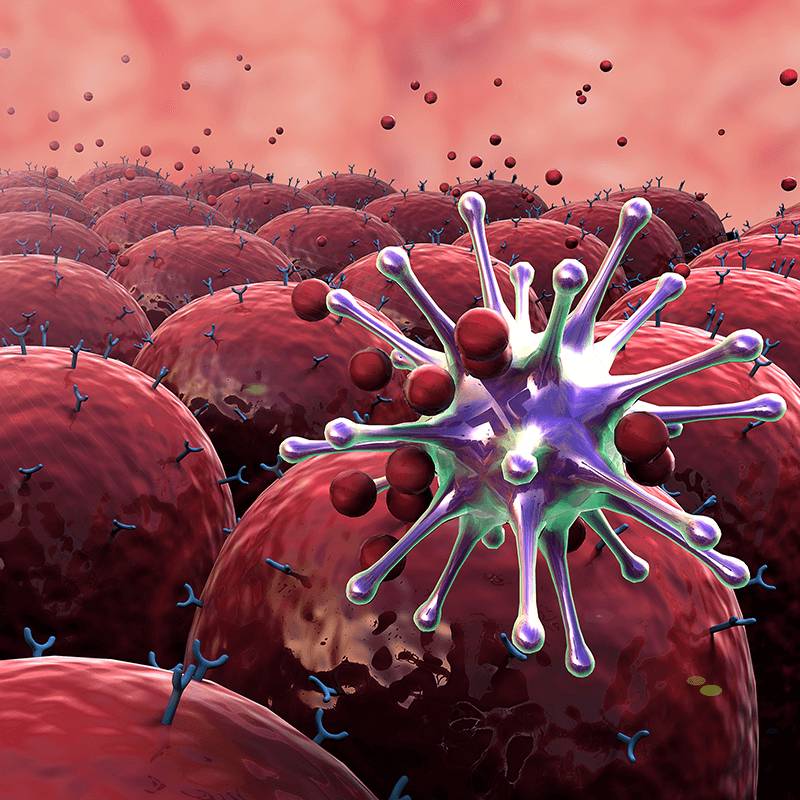Immunotherapy, also known as biologic therapy or biotherapy, is a type of cancer treatment that stimulates the body’s immune system to recognize and attack cancer cells. The goal of immunotherapy is to enhance the natural ability of the immune system to identify and destroy cancer cells, potentially leading to more targeted and durable responses. Here are key points about immunotherapy:

Types of Immunotherapy:
- Checkpoint Inhibitors: These drugs block certain proteins on the surface of immune cells or cancer cells, allowing the immune system to recognize and attack cancer cells more effectively.
- CAR T-cell Therapy: This approach involves modifying a patient’s own T cells (a type of immune cell) to express chimeric antigen receptors (CARs) that target specific cancer cells.
- Cytokines: Proteins that stimulate the immune system, such as interleukins and interferons, can be used to enhance the body’s natural defenses against cancer.
- Cancer Vaccines: Vaccines designed to stimulate the immune system to recognize and attack cancer cells.
Targets of Immunotherapy:
- Immunotherapy can target various components of the immune system, including T cells, B cells, natural killer cells, and other immune system components.
Checkpoint Inhibitors:
- Drugs such as pembrolizumab, nivolumab, and ipilimumab work by blocking specific proteins (checkpoint proteins like PD-1 and CTLA-4) that prevent T cells from attacking cancer cells.
CAR T-cell Therapy:
- Collection of T Cells: T cells are extracted from the patient’s blood.
- Genetic Modification: T cells are genetically engineered to express CARs that recognize specific proteins on the surface of cancer cells.
- Infusion: Modified T cells are infused back into the patient, where they can recognize and kill cancer cells.
Indications:
- Immunotherapy has been approved for the treatment of various cancers, including melanoma, lung cancer, kidney cancer, bladder cancer, and certain types of lymphomas.
Response Rates:
- Immunotherapy can lead to durable responses, and in some cases, long-term remission, especially in patients with specific types of cancer.
Combination Therapies:
- Immunotherapy is often used in combination with other cancer treatments, such as chemotherapy, radiation therapy, or targeted therapy, to enhance overall treatment effectiveness.
Side Effects:
- While immunotherapy is generally well-tolerated, it can cause immune-related side effects known as immune-related adverse events (irAEs). These can affect various organs and systems, including the skin, intestines, liver, and lungs.
Biomarker Testing:
- Some patients may undergo biomarker testing to determine whether they are likely to respond to specific immunotherapies.
Costimulatory Molecules:
- Some immunotherapies target costimulatory molecules to enhance immune responses against cancer cells.
Future Developments:
- Ongoing research is exploring new immunotherapy approaches, including the development of novel checkpoint inhibitors, improved CAR T-cell therapies, and the identification of additional targets for cancer vaccines.





